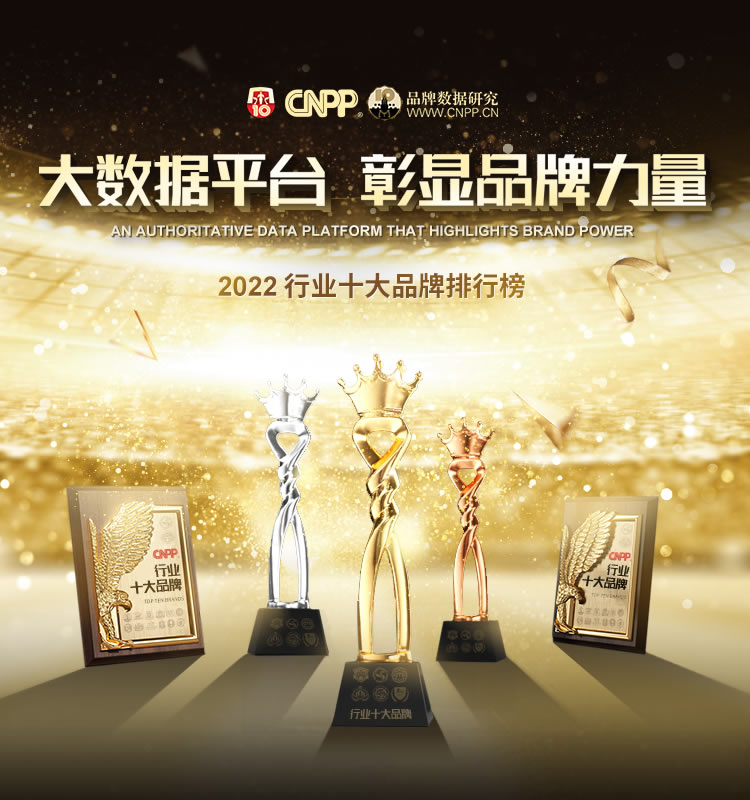

一、碳纖維加固價格是多少
碳(tan)(tan)纖(xian)(xian)維(wei)(wei)加(jia)固(gu),是指使(shi)用(yong)碳(tan)(tan)纖(xian)(xian)維(wei)(wei)作為(wei)加(jia)固(gu)材(cai)料,用(yong)于混凝土(tu)(tu)結(jie)(jie)構(gou)(gou)加(jia)固(gu)修(xiu)補,其原理是將抗(kang)拉強(qiang)度(du)(du)(du)極高(gao)(gao)的(de)(de)(de)碳(tan)(tan)纖(xian)(xian)維(wei)(wei)用(yong)環氧樹脂預浸成為(wei)復合增強(qiang)材(cai)料(單(dan)向(xiang)連續纖(xian)(xian)維(wei)(wei));用(yong)環氧樹脂粘結(jie)(jie)劑沿受拉方(fang)向(xiang)或(huo)垂直于裂(lie)(lie)縫方(fang)向(xiang)粘貼在(zai)要補強(qiang)的(de)(de)(de)結(jie)(jie)構(gou)(gou)上(shang),形成一(yi)(yi)(yi)個(ge)新(xin)的(de)(de)(de)復合體(ti),使(shi)增強(qiang)粘貼材(cai)料與原有(you)(you)(you)鋼(gang)筋混凝土(tu)(tu)共同受力(li)增大(da)(da)結(jie)(jie)構(gou)(gou)的(de)(de)(de)抗(kang)裂(lie)(lie)或(huo)抗(kang)剪(jian)能力(li),提(ti)高(gao)(gao)結(jie)(jie)構(gou)(gou)的(de)(de)(de)強(qiang)度(du)(du)(du)、剛度(du)(du)(du)、抗(kang)裂(lie)(lie)性和延伸性。碳(tan)(tan)纖(xian)(xian)維(wei)(wei)加(jia)固(gu)的(de)(de)(de)造(zao)價(jia)受到多(duo)方(fang)面(mian)因(yin)素的(de)(de)(de)影(ying)響(xiang),材(cai)料加(jia)上(shang)人工(gong)費用(yong),一(yi)(yi)(yi)般在(zai)200元-500元每(mei)平米左右,具體(ti)價(jia)格影(ying)響(xiang)因(yin)素有(you)(you)(you):1、碳(tan)(tan)纖(xian)(xian)維(wei)(wei)厚度(du)(du)(du):不(bu)(bu)同墻面(mian)加(jia)固(gu)需要的(de)(de)(de)碳(tan)(tan)纖(xian)(xian)維(wei)(wei)厚度(du)(du)(du)有(you)(you)(you)所不(bu)(bu)同,造(zao)價(jia)上(shang)自然(ran)會有(you)(you)(you)一(yi)(yi)(yi)些(xie)差異(yi)。2、工(gong)程量大(da)(da)小:工(gong)程量大(da)(da),需要的(de)(de)(de)碳(tan)(tan)纖(xian)(xian)維(wei)(wei)多(duo),單(dan)價(jia)相對來說會便宜(yi)一(yi)(yi)(yi)些(xie)。3、碳(tan)(tan)纖(xian)(xian)維(wei)(wei)密(mi)度(du)(du)(du):在(zai)碳(tan)(tan)纖(xian)(xian)維(wei)(wei)材(cai)質(zhi)的(de)(de)(de)銷售市場上(shang),也存在(zai)著(zhu)密(mi)度(du)(du)(du)不(bu)(bu)同的(de)(de)(de)分別。有(you)(you)(you)些(xie)建(jian)筑樓體(ti)不(bu)(bu)需要密(mi)度(du)(du)(du)很高(gao)(gao),造(zao)價(jia)會便宜(yi)一(yi)(yi)(yi)些(xie)。
二、碳纖維是什么材料
碳(tan)纖(xian)(xian)(xian)(xian)維(wei)(wei)是(shi)纖(xian)(xian)(xian)(xian)維(wei)(wei)材料的(de)(de)一種,是(shi)由碳(tan)元素(su)組成的(de)(de)一種特種纖(xian)(xian)(xian)(xian)維(wei)(wei),其(qi)含碳(tan)量(liang)(liang)在90%以上,是(shi)一種高(gao)強度(du)、高(gao)模量(liang)(liang)纖(xian)(xian)(xian)(xian)維(wei)(wei),用腈綸和(he)粘膠纖(xian)(xian)(xian)(xian)維(wei)(wei)做原料,經(jing)高(gao)溫(wen)氧化(hua)碳(tan)化(hua)而成。和(he)其(qi)他纖(xian)(xian)(xian)(xian)維(wei)(wei)材料相比,碳(tan)纖(xian)(xian)(xian)(xian)維(wei)(wei)的(de)(de)密(mi)度(du)小,因此比強度(du)和(he)比模量(liang)(liang)高(gao),具有耐高(gao)溫(wen)、抗摩擦、導(dao)電(dian)、導(dao)熱及耐腐(fu)蝕等特性。
三、碳纖維多少錢一公斤
碳纖維是一種優質的纖維材料,不過它的價格也是比較貴的,現代碳纖維原材料主要來源于高分子有機化合物以及石油提取物,一般情況下2-2.2噸原絲只能燒出1噸碳纖維,成本大約4-6萬/噸,再加上生產加工過程中的電費、研發費用等,價格不等,具體價格要看應用領域、工藝配方、生產廠家等,沒有固定價格,可以自行聯系廠家詢問。如果您需要購買碳纖維,可以先來了解一下碳纖維十大品牌。
四、碳纖維復合材料的特點
碳(tan)(tan)(tan)(tan)纖(xian)(xian)維(wei)(wei)(wei)(wei)復(fu)(fu)(fu)(fu)(fu)(fu)合(he)(he)(he)(he)(he)(he)(he)(he)材(cai)(cai)(cai)(cai)(cai)料(liao)(liao)(liao)(liao)(liao)(liao)(liao)(liao)(liao),就是(shi)碳(tan)(tan)(tan)(tan)纖(xian)(xian)維(wei)(wei)(wei)(wei)與其他(ta)(ta)基(ji)體(ti)材(cai)(cai)(cai)(cai)(cai)料(liao)(liao)(liao)(liao)(liao)(liao)(liao)(liao)(liao)復(fu)(fu)(fu)(fu)(fu)(fu)合(he)(he)(he)(he)(he)(he)(he)(he)制成(cheng)(cheng)的(de)(de)(de)(de)(de)(de)(de)(de)結(jie)(jie)構(gou)材(cai)(cai)(cai)(cai)(cai)料(liao)(liao)(liao)(liao)(liao)(liao)(liao)(liao)(liao)。和普通的(de)(de)(de)(de)(de)(de)(de)(de)碳(tan)(tan)(tan)(tan)纖(xian)(xian)維(wei)(wei)(wei)(wei)材(cai)(cai)(cai)(cai)(cai)料(liao)(liao)(liao)(liao)(liao)(liao)(liao)(liao)(liao)相比,復(fu)(fu)(fu)(fu)(fu)(fu)合(he)(he)(he)(he)(he)(he)(he)(he)碳(tan)(tan)(tan)(tan)纖(xian)(xian)維(wei)(wei)(wei)(wei)材(cai)(cai)(cai)(cai)(cai)料(liao)(liao)(liao)(liao)(liao)(liao)(liao)(liao)(liao)性(xing)(xing)(xing)能(neng)(neng)得(de)到一(yi)(yi)(yi)(yi)定(ding)的(de)(de)(de)(de)(de)(de)(de)(de)改進,且應(ying)用更(geng)加(jia)(jia)廣泛(fan)。常見的(de)(de)(de)(de)(de)(de)(de)(de)碳(tan)(tan)(tan)(tan)纖(xian)(xian)維(wei)(wei)(wei)(wei)復(fu)(fu)(fu)(fu)(fu)(fu)合(he)(he)(he)(he)(he)(he)(he)(he)材(cai)(cai)(cai)(cai)(cai)料(liao)(liao)(liao)(liao)(liao)(liao)(liao)(liao)(liao)有碳(tan)(tan)(tan)(tan)纖(xian)(xian)維(wei)(wei)(wei)(wei)增(zeng)強(qiang)環氧樹脂復(fu)(fu)(fu)(fu)(fu)(fu)合(he)(he)(he)(he)(he)(he)(he)(he)材(cai)(cai)(cai)(cai)(cai)料(liao)(liao)(liao)(liao)(liao)(liao)(liao)(liao)(liao)、碳(tan)(tan)(tan)(tan)纖(xian)(xian)維(wei)(wei)(wei)(wei)金屬復(fu)(fu)(fu)(fu)(fu)(fu)合(he)(he)(he)(he)(he)(he)(he)(he)材(cai)(cai)(cai)(cai)(cai)料(liao)(liao)(liao)(liao)(liao)(liao)(liao)(liao)(liao)、碳(tan)(tan)(tan)(tan)纖(xian)(xian)維(wei)(wei)(wei)(wei)陶瓷(ci)復(fu)(fu)(fu)(fu)(fu)(fu)合(he)(he)(he)(he)(he)(he)(he)(he)材(cai)(cai)(cai)(cai)(cai)料(liao)(liao)(liao)(liao)(liao)(liao)(liao)(liao)(liao)、碳(tan)(tan)(tan)(tan)纖(xian)(xian)維(wei)(wei)(wei)(wei)陶瓷(ci)復(fu)(fu)(fu)(fu)(fu)(fu)合(he)(he)(he)(he)(he)(he)(he)(he)材(cai)(cai)(cai)(cai)(cai)料(liao)(liao)(liao)(liao)(liao)(liao)(liao)(liao)(liao)、碳(tan)(tan)(tan)(tan)纖(xian)(xian)維(wei)(wei)(wei)(wei)混凝土(tu)復(fu)(fu)(fu)(fu)(fu)(fu)合(he)(he)(he)(he)(he)(he)(he)(he)材(cai)(cai)(cai)(cai)(cai)料(liao)(liao)(liao)(liao)(liao)(liao)(liao)(liao)(liao)等(deng),具(ju)有以(yi)下特點(dian):1、可(ke)設計性(xing)(xing)(xing)強(qiang):碳(tan)(tan)(tan)(tan)纖(xian)(xian)維(wei)(wei)(wei)(wei)復(fu)(fu)(fu)(fu)(fu)(fu)合(he)(he)(he)(he)(he)(he)(he)(he)材(cai)(cai)(cai)(cai)(cai)料(liao)(liao)(liao)(liao)(liao)(liao)(liao)(liao)(liao)的(de)(de)(de)(de)(de)(de)(de)(de)力學性(xing)(xing)(xing)能(neng)(neng)是(shi)很強(qiang)的(de)(de)(de)(de)(de)(de)(de)(de),而(er)(er)且他(ta)(ta)的(de)(de)(de)(de)(de)(de)(de)(de)機械性(xing)(xing)(xing)能(neng)(neng)是(shi)可(ke)以(yi)按(an)照對應(ying)的(de)(de)(de)(de)(de)(de)(de)(de)產(chan)品得(de)到實(shi)用要(yao)求還(huan)有環境的(de)(de)(de)(de)(de)(de)(de)(de)條件,從而(er)(er)通過(guo)對材(cai)(cai)(cai)(cai)(cai)料(liao)(liao)(liao)(liao)(liao)(liao)(liao)(liao)(liao)的(de)(de)(de)(de)(de)(de)(de)(de)精心選擇還(huan)有匹配控制等(deng)手段(duan),更(geng)好(hao)(hao)發揮(hui)碳(tan)(tan)(tan)(tan)纖(xian)(xian)維(wei)(wei)(wei)(wei)復(fu)(fu)(fu)(fu)(fu)(fu)合(he)(he)(he)(he)(he)(he)(he)(he)材(cai)(cai)(cai)(cai)(cai)料(liao)(liao)(liao)(liao)(liao)(liao)(liao)(liao)(liao)的(de)(de)(de)(de)(de)(de)(de)(de)優勢(shi),滿足使用者(zhe)的(de)(de)(de)(de)(de)(de)(de)(de)需求。2、依賴(lai)性(xing)(xing)(xing):碳(tan)(tan)(tan)(tan)纖(xian)(xian)維(wei)(wei)(wei)(wei)復(fu)(fu)(fu)(fu)(fu)(fu)合(he)(he)(he)(he)(he)(he)(he)(he)材(cai)(cai)(cai)(cai)(cai)料(liao)(liao)(liao)(liao)(liao)(liao)(liao)(liao)(liao)的(de)(de)(de)(de)(de)(de)(de)(de)結(jie)(jie)構(gou)其實(shi)是(shi)在(zai)物理和化學反應(ying)之(zhi)間不(bu)斷(duan)變化的(de)(de)(de)(de)(de)(de)(de)(de),而(er)(er)且這個復(fu)(fu)(fu)(fu)(fu)(fu)合(he)(he)(he)(he)(he)(he)(he)(he)材(cai)(cai)(cai)(cai)(cai)料(liao)(liao)(liao)(liao)(liao)(liao)(liao)(liao)(liao)的(de)(de)(de)(de)(de)(de)(de)(de)構(gou)建性(xing)(xing)(xing)能(neng)(neng)對于各種(zhong)工(gong)藝(yi)的(de)(de)(de)(de)(de)(de)(de)(de)加(jia)(jia)工(gong)參(can)數(shu),方法和過(guo)程是(shi)有著一(yi)(yi)(yi)(yi)定(ding)的(de)(de)(de)(de)(de)(de)(de)(de)依賴(lai)性(xing)(xing)(xing),一(yi)(yi)(yi)(yi)般需要(yao)較高的(de)(de)(de)(de)(de)(de)(de)(de)技(ji)術水(shui)平才可(ke)以(yi)很好(hao)(hao)程度的(de)(de)(de)(de)(de)(de)(de)(de)控制好(hao)(hao)工(gong)藝(yi)的(de)(de)(de)(de)(de)(de)(de)(de)參(can)數(shu)。3、復(fu)(fu)(fu)(fu)(fu)(fu)合(he)(he)(he)(he)(he)(he)(he)(he)效應(ying):碳(tan)(tan)(tan)(tan)纖(xian)(xian)維(wei)(wei)(wei)(wei)復(fu)(fu)(fu)(fu)(fu)(fu)合(he)(he)(he)(he)(he)(he)(he)(he)材(cai)(cai)(cai)(cai)(cai)料(liao)(liao)(liao)(liao)(liao)(liao)(liao)(liao)(liao)由碳(tan)(tan)(tan)(tan)纖(xian)(xian)維(wei)(wei)(wei)(wei)和其他(ta)(ta)基(ji)本材(cai)(cai)(cai)(cai)(cai)料(liao)(liao)(liao)(liao)(liao)(liao)(liao)(liao)(liao)的(de)(de)(de)(de)(de)(de)(de)(de)融合(he)(he)(he)(he)(he)(he)(he)(he)所(suo)構(gou)成(cheng)(cheng),這種(zhong)復(fu)(fu)(fu)(fu)(fu)(fu)合(he)(he)(he)(he)(he)(he)(he)(he)材(cai)(cai)(cai)(cai)(cai)料(liao)(liao)(liao)(liao)(liao)(liao)(liao)(liao)(liao)是(shi)需要(yao)經過(guo)加(jia)(jia)工(gong)的(de)(de)(de)(de)(de)(de)(de)(de),經過(guo)加(jia)(jia)工(gong)之(zhi)后所(suo)表現(xian)出來的(de)(de)(de)(de)(de)(de)(de)(de)性(xing)(xing)(xing)能(neng)(neng)并不(bu)是(shi)各種(zhong)材(cai)(cai)(cai)(cai)(cai)料(liao)(liao)(liao)(liao)(liao)(liao)(liao)(liao)(liao)的(de)(de)(de)(de)(de)(de)(de)(de)簡單混合(he)(he)(he)(he)(he)(he)(he)(he),而(er)(er)是(shi)需要(yao)按(an)照復(fu)(fu)(fu)(fu)(fu)(fu)合(he)(he)(he)(he)(he)(he)(he)(he)效應(ying)形成(cheng)(cheng)一(yi)(yi)(yi)(yi)種(zhong)新的(de)(de)(de)(de)(de)(de)(de)(de)特點(dian)。4、同(tong)一(yi)(yi)(yi)(yi)性(xing)(xing)(xing):碳(tan)(tan)(tan)(tan)纖(xian)(xian)維(wei)(wei)(wei)(wei)復(fu)(fu)(fu)(fu)(fu)(fu)合(he)(he)(he)(he)(he)(he)(he)(he)材(cai)(cai)(cai)(cai)(cai)料(liao)(liao)(liao)(liao)(liao)(liao)(liao)(liao)(liao)是(shi)一(yi)(yi)(yi)(yi)種(zhong)材(cai)(cai)(cai)(cai)(cai)料(liao)(liao)(liao)(liao)(liao)(liao)(liao)(liao)(liao)也是(shi)一(yi)(yi)(yi)(yi)種(zhong)結(jie)(jie)構(gou),傳統材(cai)(cai)(cai)(cai)(cai)料(liao)(liao)(liao)(liao)(liao)(liao)(liao)(liao)(liao)對構(gou)件成(cheng)(cheng)型的(de)(de)(de)(de)(de)(de)(de)(de)材(cai)(cai)(cai)(cai)(cai)料(liao)(liao)(liao)(liao)(liao)(liao)(liao)(liao)(liao)是(shi)加(jia)(jia)工(gong)進行實(shi)現(xian)的(de)(de)(de)(de)(de)(de)(de)(de),而(er)(er)碳(tan)(tan)(tan)(tan)纖(xian)(xian)維(wei)(wei)(wei)(wei)的(de)(de)(de)(de)(de)(de)(de)(de)這種(zhong)復(fu)(fu)(fu)(fu)(fu)(fu)合(he)(he)(he)(he)(he)(he)(he)(he)材(cai)(cai)(cai)(cai)(cai)料(liao)(liao)(liao)(liao)(liao)(liao)(liao)(liao)(liao)是(shi)和構(gou)件成(cheng)(cheng)型的(de)(de)(de)(de)(de)(de)(de)(de)時間是(shi)同(tong)一(yi)(yi)(yi)(yi)完成(cheng)(cheng)的(de)(de)(de)(de)(de)(de)(de)(de),所(suo)以(yi)這種(zhong)復(fu)(fu)(fu)(fu)(fu)(fu)合(he)(he)(he)(he)(he)(he)(he)(he)材(cai)(cai)(cai)(cai)(cai)料(liao)(liao)(liao)(liao)(liao)(liao)(liao)(liao)(liao)的(de)(de)(de)(de)(de)(de)(de)(de)整體(ti)性(xing)(xing)(xing)能(neng)(neng)是(shi)很好(hao)(hao)的(de)(de)(de)(de)(de)(de)(de)(de)。